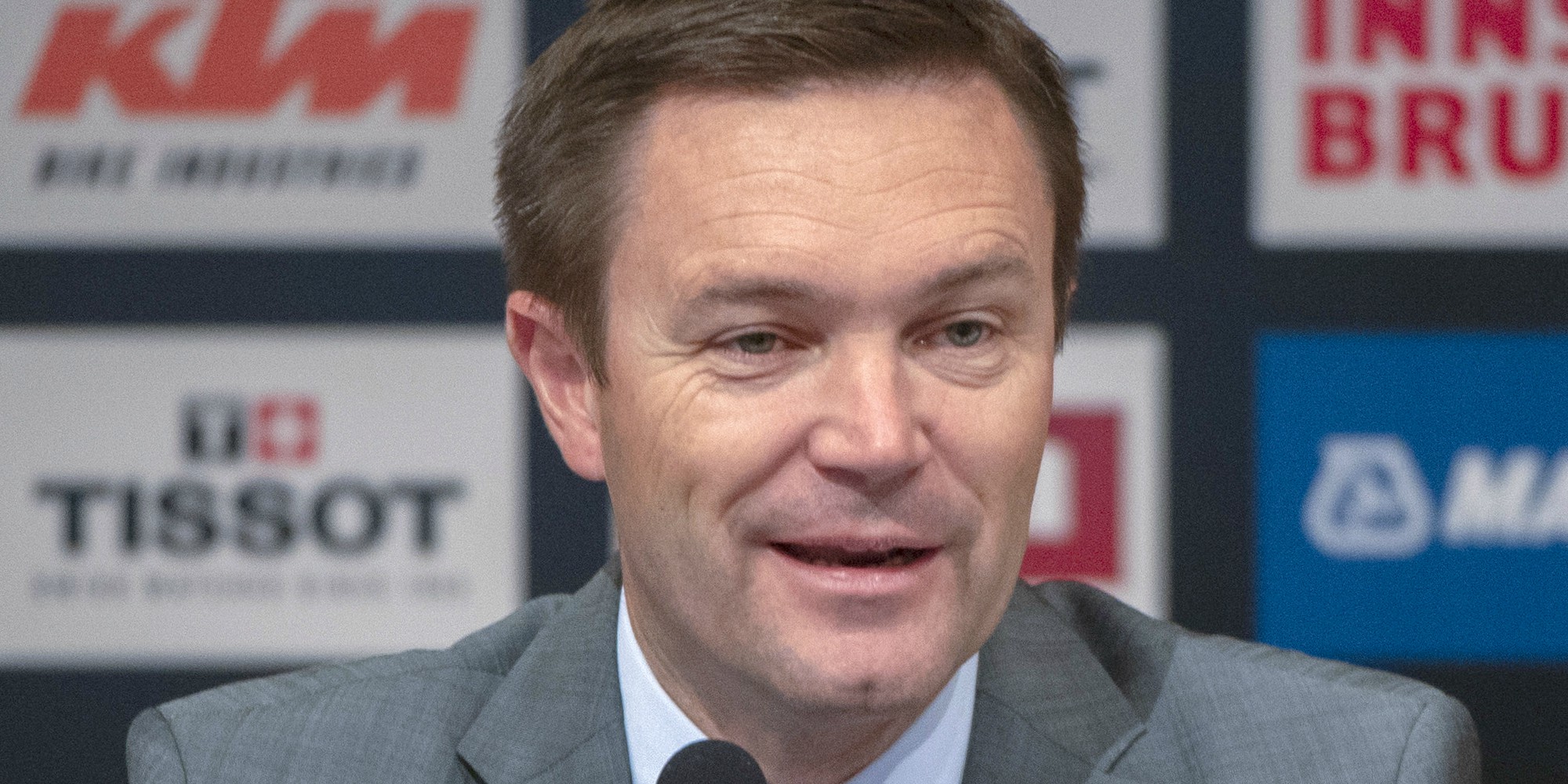A symbol: it is the first confined European country that will kick off the cyclist recovery, Italy with its "bi-strade" .... test known for its dirt roads, to be held on August 1 . A first in a long series. Until the beginning of November, it will then be an orgy of world tour races, the most difficult races. Without counting the great Tours which will be linked, with the Tour de France in September, then the Giro (the Tour of Italy, editor's note) from October 3 to 25, and finally on horseback, the Vuelta (the Tour of Spain (editor's note) from October 20 until November 8. "If we worked out an unconstrained calendar, we wouldn't have done that," confides on Europe 1 the UCI boss, Frenchman David Lappartient.
>> Find all of the major debates in Europe 1 Sport in replay and podcast here
A crazy calendar in October
And for good reason, it is difficult to postpone the tests beyond the month of November. "We have a period that spans three months. If we did not want any overlap, this would have pushed the Vuelta to mid-November, and there, the difficulties that could arise are the passages in the Pyrenees", explains David Lappartient. "Being in a mountain region at that time involves too many risks, particularly climatic, with the risk of snow and also conditions linked to the light, the days ending much earlier. choice to allow an overlap between the two. "
As a result, the Vuelta reduced the number of stages from 21 to 18 to avoid over-encroaching on the Giro . These are the stages which were to leave from the Netherlands which were canceled.
The fact remains that the month of October promises to be dantesque, between the great Tours and the classics that will follow one another with Liège-Bastogne-Liège, the Amstel Gold Race, the Tour of Flanders and the Paris-Roubaix, without counting the World Championships in Switzerland. In total, 25 races will be held during this period. "It was especially the month of October when it was the most complicated," admits the president of the UCI. "It is normal, the organizer of the Giro hoped to have as little as possible, the organizers of the classics, they said 'we will not be able to do them in November because of the weather conditions', there was also the duration of the Giro that was a question, where we refereed. He kept his original length, but that also went hand in hand with having Sundays where he would endure a little competition. "
Recovery, an economic necessity
The suspension of racing since mid-March has done a lot of harm. Several professional teams find themselves in great financial difficulties. The peloton needs a second half of the season otherwise it risks seeing cycling plunge into a "fairly catastrophic situation". These are the words of David Lappartient, who wants to be quite optimistic, however. "In every difficulty there are always opportunities. Will this end of the season lead to an end of the season that will be sparkling? This is what we all hope, because all the runners know that they will have three months where they will have to be concentrated, there will be no rest period ", he explains on Europe 1.
"There is also a world championship in the middle of all that can be extraordinary. We are realistic, we see what is happening at the global level, but we remain resolutely optimistic. Having a 2020 end of the season that looks like something thing is essential. " A date will be ticked by cycling enthusiasts, Sunday October 25: that day, there will be the arrival of the Giro , the sixth stage of the Vuelta and "Hell of the North", the Paris-Roubaix, where mud and rain could come.

